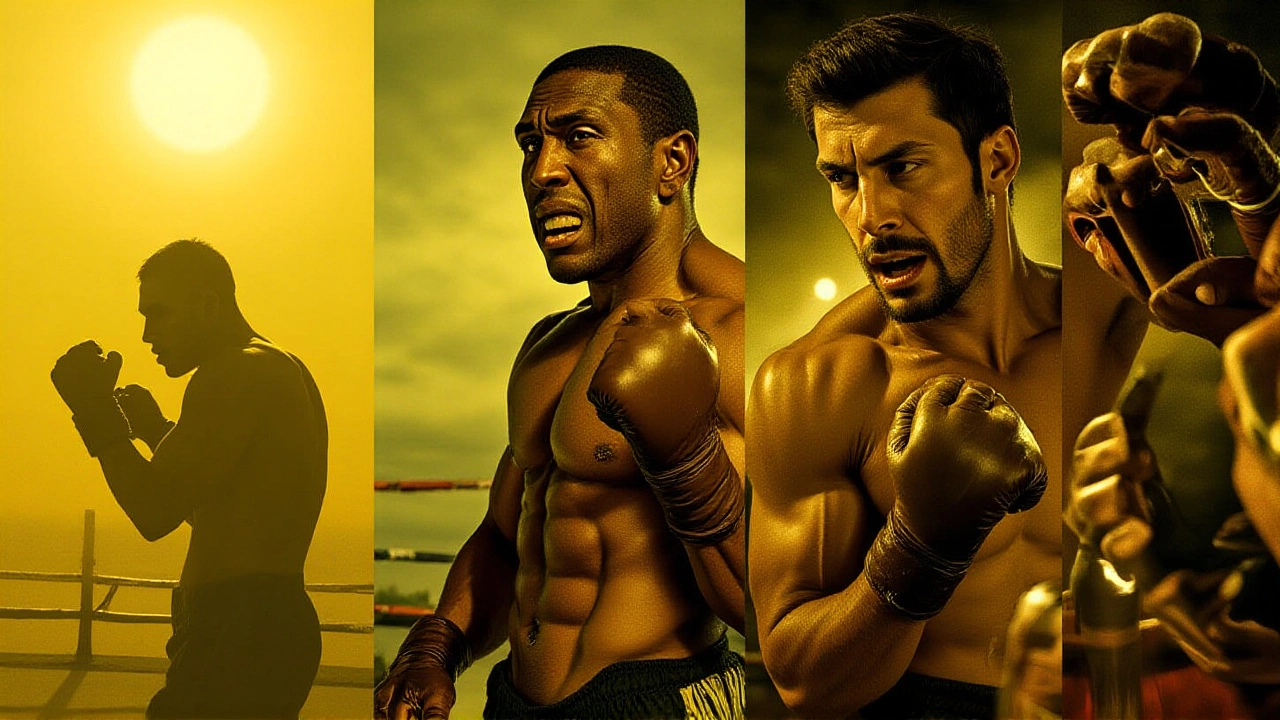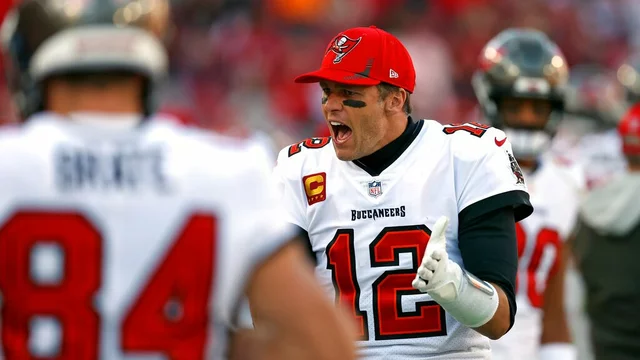When the betting lines dropped on Tuesday, November 18, 2025, the boxing world didn’t just take notice—it leaned in. Jake Paul, the brash American influencer-turned-pro-boxer, entered the ring as a +800 underdog against Anthony Joshua, the former unified heavyweight champion from the UK, who was priced at a commanding -1200 favorite. The fight, officially titled Jake vs. Joshua: Judgment Day, isn’t scheduled yet, and the venue? Still a mystery. But the odds? Crystal clear. And they’re telling a story far bigger than just who’s likely to win on paper.
Why These Odds Are Staggering
The numbers don’t lie: a $100 bet on Paul would net $800 if he pulled off the upset. Meanwhile, you’d need to risk $1,200 on Joshua to win $100. That’s not just a favorite—it’s a landslide in the eyes of the sportsbooks. And yet, this isn’t just about experience. Joshua, 35, has 28 pro fights, two Olympic golds, and held multiple world titles. Paul, 28, has 10 pro bouts, mostly against MMA fighters and retired athletes. His last real boxing test? A split-decision win over former champion Tyron Woodley in 2023. Joshua’s last loss? A brutal knockout to Oleksandr Usyk in 2022. But here’s the twist: Paul’s brand is bigger than Joshua’s in the U.S. right now. His social media reach? Over 70 million across platforms. Joshua’s? Around 15 million. So why does the market still see him as a 12-to-1 long shot?
Early Odds, Big Implications
Both World Boxing News and Fightnews published near-identical reports on November 18, 2025, confirming the same lines. That’s rare. In boxing, where rumors fly and odds shift like desert sand, two reputable outlets locking in the same numbers on the same day signals something: the sportsbooks are confident. And they’re not just guessing. DraftKings, FanDuel, and BetMGM likely set these lines after analyzing everything from Paul’s ring IQ to Joshua’s conditioning. The Fightnews headline—"It’ll be interesting to see if and how those odds sway as the fight looms closer"—isn’t just commentary. It’s a warning. These numbers will move. A lot.
The Underdog’s Advantage
Paul’s odds aren’t just high—they’re historic. No crossover star with Paul’s profile has ever entered a heavyweight bout at +800 against a former champion. Compare it to Tyson Fury’s +600 underdog status against Deontay Wilder in 2018. Or even Mike Tyson’s +400 against Buster Douglas in 1990. Paul’s line is worse than both. And yet, he’s got something Douglas didn’t: a global fanbase that buys pay-per-views, merch, and hype. His fans don’t need him to be a technical genius. They need him to be electric. Joshua, meanwhile, carries the weight of British boxing’s hopes. He’s not just fighting for a paycheck—he’s fighting to reclaim relevance. The crowd at this fight? It won’t be in a stadium. It’ll be on TikTok, YouTube, and Instagram Reels. That’s the real battleground.
What’s Missing? Everything Else
Here’s the odd part: neither report mentions a date. Or a location. Or a promoter. Or a sanctioning body. No WBC. No WBA. No IBF. The fight could be in Riyadh, Las Vegas, or even a private island. No one’s saying. That’s not unusual for Paul’s events—he’s done fights in Saudi Arabia, the UAE, and even a YouTube-exclusive bout in 2023. But for Joshua, this is a career reset. He’s been out of the ring since losing to Usyk in June 2024. His last public appearance? A charity gala in Manchester. No training footage. No sparring leaks. No interviews. Meanwhile, Paul’s been posting gym clips since October. He’s already in fight shape. That’s not coincidence. That’s strategy.
Why This Matters Beyond the Ring
This isn’t just another boxing match. It’s a cultural collision. Paul represents the new era: viral fame, social media clout, and entertainment-first sports. Joshua represents the old guard: Olympic pedigree, traditional training, and global prestige. The odds reflect a deep skepticism toward Paul’s legitimacy. But they also reveal a blind spot. In 2021, Logan Paul beat Floyd Mayweather in an exhibition—and made $60 million doing it. People don’t always bet on who they think will win. They bet on who they think will deliver. And right now, the market thinks Joshua will win. But if Paul lands one clean left hook in the third round? Those odds won’t just move. They’ll implode.
What’s Next?
Look for the official announcement by mid-December. Rumors point to a December 14, 2025, date in Riyadh, with a live stream on DAZN and YouTube. If the fight gets a sanctioning body, the odds could tighten. If Joshua drops weight to 215 pounds for a catchweight bout? That’s a game-changer. But if the fight stays at heavyweight—with Paul’s natural 220+ pound frame—and no title on the line? The +800 could balloon to +1000. That’s what happens when the market realizes the favorite’s been resting while the underdog’s been grinding.
Historical Context: When Underdogs Shattered Expectations
Boxing’s greatest upsets didn’t come from perfect technique. They came from heart, timing, and chaos. Buster Douglas knocked out Tyson. Hasim Rahman stunned Lewis. Even David Tua shocked Lennox Lewis in 2002. Paul doesn’t need to outbox Joshua. He just needs to outlast him. One punch. One moment. One crowd going silent. That’s all it takes. Joshua’s last two losses came after he slowed down in the later rounds. Paul’s cardio? Elite. He trains like a UFC fighter. And he’s not afraid to brawl. The odds say he’ll lose. But history says: don’t count out the guy nobody believes in.
Frequently Asked Questions
Why is Jake Paul such a big underdog despite his popularity?
Despite his massive social media following and PPV success, Paul’s professional boxing record is thin compared to Joshua’s. He’s never fought a top-tier, elite-level heavyweight, and his opponents have mostly been MMA fighters or retired athletes. Bookmakers weigh experience, technique, and physical durability—and Joshua, despite recent losses, still has a resume Paul can’t match. The odds reflect that gap in pedigree, not popularity.
What do the +800 and -1200 odds actually mean?
+800 means a $100 bet on Jake Paul returns $800 in profit if he wins. -1200 means you must bet $1,200 on Anthony Joshua to win $100 in profit. These are American-style odds showing implied probability: Joshua is seen as having an 92% chance to win, while Paul’s odds suggest just a 11% chance. That’s one of the widest spreads in modern heavyweight boxing history.
Will these odds change before the fight?
Almost certainly. Early odds are set based on limited information. If Paul releases training footage showing improved footwork or sparring with elite heavyweights, the line could drop to +500 or lower. If Joshua shows signs of injury or poor conditioning, the odds could swing even more dramatically. Betting markets react to evidence—not hype.
Is this fight for a championship title?
No, not currently. Neither report mentions any sanctioning body or title on the line. This appears to be a high-profile, non-title exhibition-style bout, likely structured like Paul’s previous fights against Ben Askren or Tyron Woodley. That’s unusual for Joshua, who typically fights for belts. The lack of a title suggests this is more about revenue and legacy than championship prestige.
Could Jake Paul actually win?
Yes—but only under specific conditions. Joshua has shown vulnerability in later rounds, especially after heavy punishment. If Paul can keep the pace high, land clean power shots early, and avoid getting trapped in Joshua’s jab, he has a real shot. Paul’s cardio, aggression, and ring awareness have improved significantly since 2023. It’s not likely. But in boxing, unlikely doesn’t mean impossible.
Where might this fight take place?
Riyadh, Saudi Arabia, is the leading rumor, given Paul’s previous deals with the Kingdom and Joshua’s willingness to fight internationally. Other possibilities include Las Vegas (if a major promoter steps in) or a private venue in the UK. The lack of confirmed location suggests negotiations are still underway, and the event may be tied to a streaming deal rather than traditional TV broadcast.
- Poplular Tags
- Jake Paul
- Anthony Joshua
- boxing odds
- heavyweight fight
- betting market











